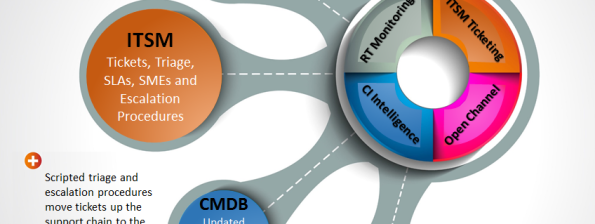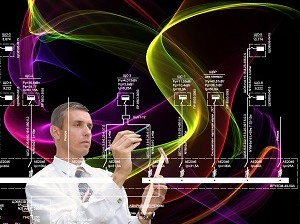Tag Archives: attention
26 Jan Give Me Smart Requirements

I know how to solve this problem! I’ll just blast it to smithereens – Fire – Aim – Ready. Artificial Intelligence (AI) has been explored and developed in universities and startup companies throughout the developed world for decades, but is still struggling to reach the mainstream. There are many companies that effectively use intelligent processes and […]
03 Dec Co-Responsibility in Hybrid IT

Operational Continuity takes a Village Today’s post departs from my current stream of topics because I am thinking about this subject often lately. I apologize for the ambiguous title, but I think it encapsulates what I want to talk about. “Hybrid IT” is a way of describing the technology supporting an organization in which the […]
15 Jul From Perception and Learning to Logic

Perception and Learning I am not a cognitive scientist, so all I have said in this section is based on the work of others. On the other hand, I have probably spent more time seriously studying cognition than most computer geeks, and I have tried to form my perspectives around the best of our knowledge. The […]
10 Jun Survival of the Fittest Knowledge

Genetic Algorithms in Search I think we can safely assume that intelligent applications, including accurate language interpreters and translators, will possess large amounts of knowledge to be processed and searched. Genetic algorithms are great for searching for obscure data in massive search spaces. The mechanism for association in computers can be defined as searching, just as humans describe their […]
17 Apr Learning by Repetition

Frequency and Exposure For the very young, language learning requires mental gymnastics. Most theories of language learning refer to the fact that the frequency of repetition of a word or structure pattern determines the strength of its acquisition. In this context, there may be some threshold of frequency which, once reached, will result in the […]
16 Apr From Concept to Communication

Yorrick’s First Concepts A conceptually structured model of learning might suggest that Yorrick, or any other human, first acquires concepts, and later, a vehicle for communicating concepts: language. During Yorrick’s early development, his concepts are linked entirely to physical sensations and perceptions: hunger, soreness, the sucking instinct, and the like. One of the first discoveries […]








